Saving Lives in Sierra Leone
Humanity & Inclusion worked to strengthen healthcare and promote inclusive universal health coverage in Sierra Leone.
Humanity & Inclusion worked to strengthen healthcare and promote inclusive universal health coverage in Sierra Leone.

Healthcare workers in Freetown attend a workshop on inclusive health | © HI

Healthcare workers in Freetown attend a workshop on inclusive health | © HI
© Lucas Veuve / HI
Project Duration: February 2024 to December 2025
Consortium Contract Value (Led by Concern Worldwide): £15 million
HI Budget: £1.1 million
Districts: Kono, Kenema, Kambia, Moyamba, Bombali, and Western Area Urban
Sierra Leone faces critical health challenges, including some of the highest maternal and child mortality rates globally.The problem is driven by limited and unevenly distributed human resources, lack of quality Sexual and Reproductive Health (SRH) services, deep gender inequities, and inadequate safeguarding systems. Persons with disabilities face systemic barriers and discrimination in accessing essential healthcare.
The Saving Lives in Sierra Leone (SLiSL) Phase 3 programme was designed strengthen Sierra Leone's health systems to reduce preventable diseases and deaths among women, adolescent girls, and children by improving the quality, availability, equity, and accessibility of health services.
As a core consortium partner, Humanity & Inclusion (HI) provided technical support for disability inclusion. We focussed on enhancing accessibility, implementing community-level interventions, and developing the health workforce and accountability mechanisms. A key operational approach was partnering with local Organisations of Persons with Disabilities (OPDs) for advocacy and community mobilisation.
Our work contributed to improving the capacity of the Ministry of Health at the district level to deliver accountable, respectful, responsive, and people-centred health services. We also improved knowledge and attitudes towards disability in healthcare workers, increased visibility and inclusion of persons with disabilities in health facility data tools, and tangible steps towards improving physical accessibility.
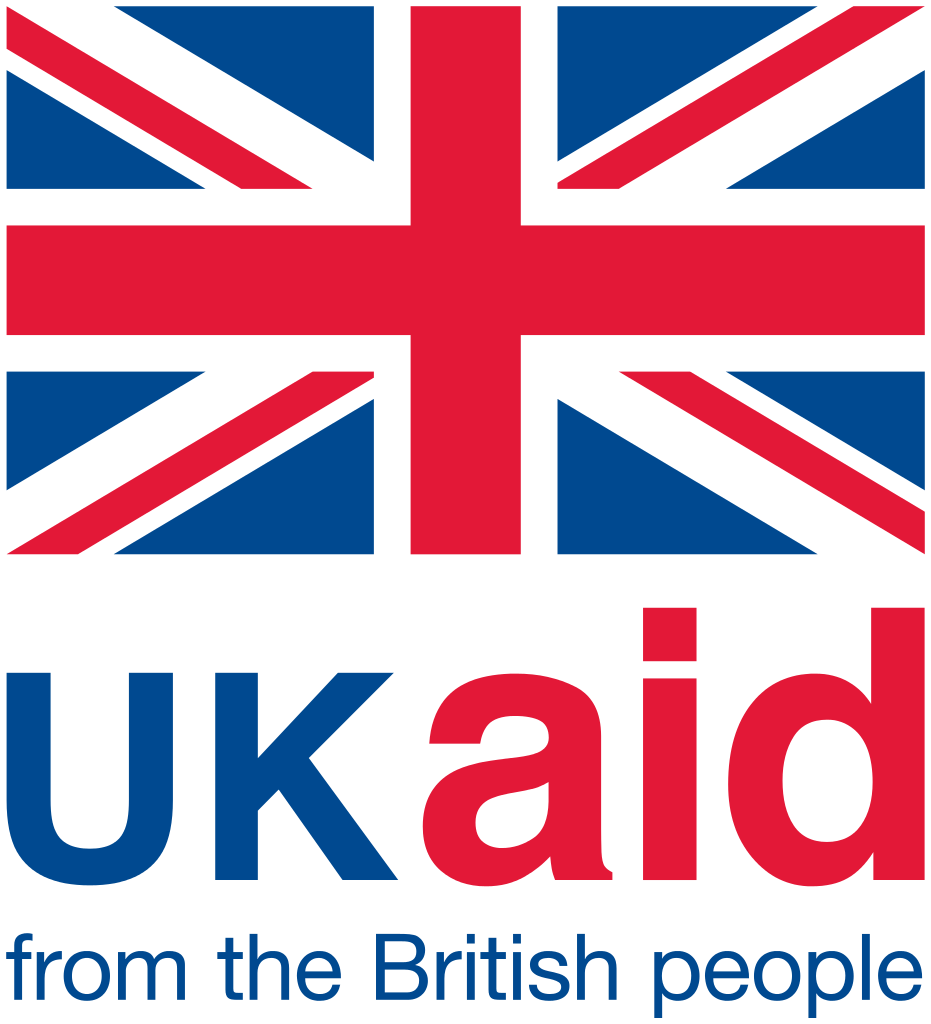
We contributed to strengthening equitable health systems by focussing on four health system building blocks:
We strengthened inclusive health system governance by providing technical support for disability inclusion in policies, planning and implementation frameworks with the Ministry of Health.
We build capacity and strengthened leadership of Organisations of Persons with Disabilities (OPDs) by conducting trainings and organising OPD-led community engagement sessions.
We improved equitable access to services by supporting the increased uptake of family planning services for hard-to-reach groups, including people with disabilities.
We promoted community-driven health initiatives through active engagement in health promotion and awareness-raising activities.
We ensured accessible health communication by developing and distributing adapted Information, Education, and Communication (IEC) materials tailored to diverse needs.
We built capacity for inclusive care by enhancing the skills and competencies of healthcare workers through targeted training and mentorship programmes for health management teams and healthcare workers.
We enabled evidence-based decision-making by advancing the collection and use of data disaggregated by disability, age, and gender, working with the Ministry of Health in Sierra Leone.
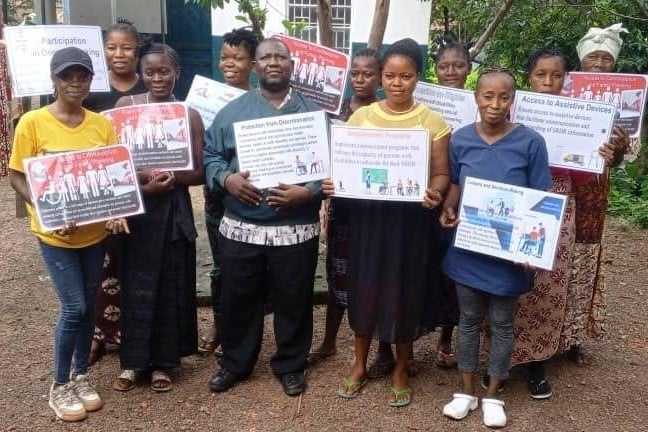



© HI
HI provided training on proposal writing and budgeting to representatives from 18 Organisations of Persons with Disabilities (OPDs). Further training was provided to OPD staff covering Inclusive Family Planning (FP)/SRHR, communication with Persons with Disabilities, and Narrative and Financial Reporting, leading to a 33% increase in knowledge on Inclusive FP/SRHR.
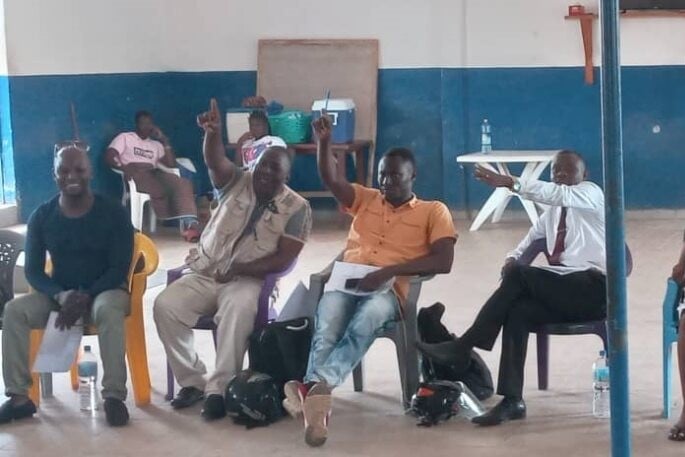



© HI
Awareness sessions on disability and inclusion were conducted for DHMT staff and hospital managers. Sessions covered concepts of disability, accessibility, and the disability legal framework. Subsequent basic training was delivered to 50 DHMT staff and hospital managers on inclusive transformative approaches, resulting in a 47.45% average increase in knowledge.
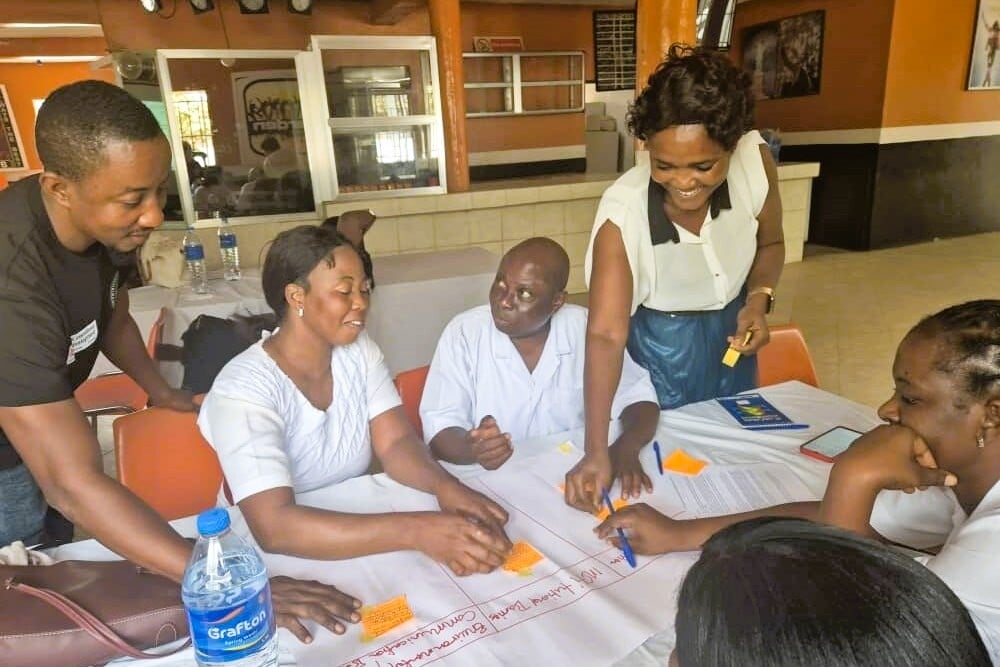



© HI
Training on Inclusive Family Planning and Sexual Reproductive Health and Rights (iSRHR) was completed with healthcare workers in Primary Health Centres. The average knowledge of participants increased from 44% to 64%. Additionally, healthcare workers from secondary hospitals were trained on iSRHR, showing an average knowledge increase from 53% to 72%.
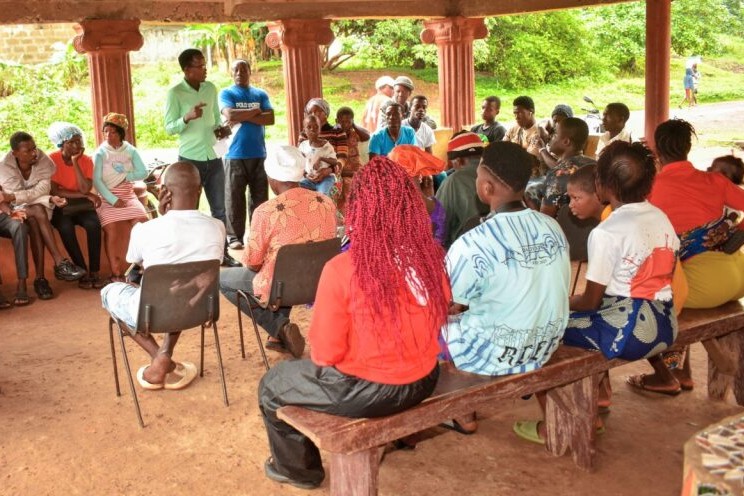



© HI
Organisations of Persons with Disabilities (OPDs) conducted continuous community engagements using methods like meetings, roadshows, and radio discussions. In From October to December 2024, OPDs held 125 community meetings, reaching nearly 3,000 participants, including 894 persons with disabilities. This led to actions such as the construction of ramps in health centres.
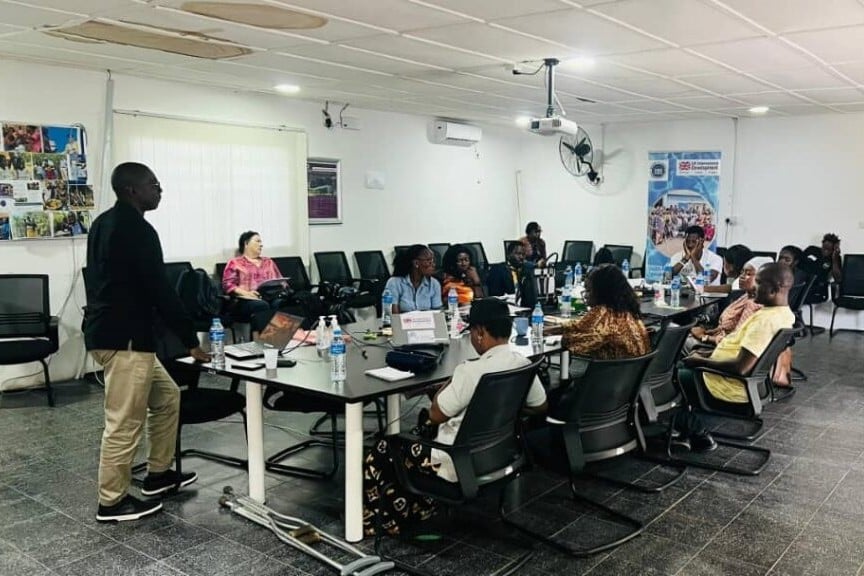



© HI
HI actively engaged with the Directorate of Policy, Planning, and Information in the Ministry of Health to review and adapt Health Monitoring and Information System health facility tools. This collaboration successfully ensured that questions on disability were included in the Ministry's health facility data tools, enabling the collection and reporting of disability data elements.
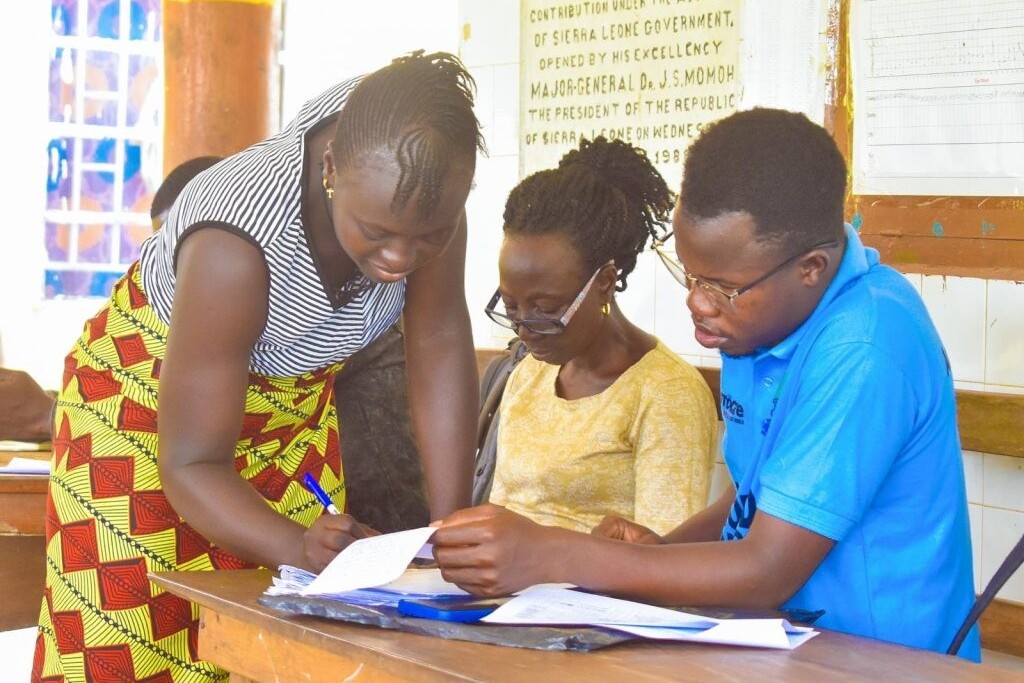



© HI
In consultation with the Ministry of Health, HI developed Information, Education, and Communication (IEC) materials about inclusive Family Planning and SRHR. These materials were produced in accessible formats, including large print, Braille, and sign language, and disseminated across the project districts to ensure access to health information for persons with different impairments.
Improved Knowledge and Attitudes: Following training, participants reported that their mindset toward people with disabilities shifted from negative to positive, and the use of inappropriate terminology reduced significantly. The training resulted in healthcare workers moving towards acceptance and respect for persons with disabilities.
Capacity Building: The average knowledge gain across key trainings was substantial. Primary health care staff trained in inclusive SRHR increased from 44% to 64%; trained secondary hospital staff increased from 53% to 72%; and trained consortium partners increased from 55% to 80%.
Accessibility Improvements: Ramps were constructed in some health facilities as a direct result of healthcare worker and community commitment informed by HI's activities. Community stakeholders committed to addressing physical accessibility after engaging with OPDs.
Systemic Inclusion: Disability issues are now being discussed in in-charge meetings, community outreach, and awareness campaigns. HI successfully ensured that questions on disability were included in the Ministry of Health's health facility data tools.
Increased Use of Health Facilities: Health facilities supported by the programme recorded a higher turnout of persons with disabilities seeking health services, suggesting improved trust and reduced barriers to access.
HI's training for Organisations of Persons with Disabilities, health practitioners and hospital managers has transformed how individuals and organisations understand disability and how they can apply inclusive practices in their daily work in Sierra Leone.
In Cambia District, HI’s training in organisational and financial management helped a finance manager from the Welfare Society for the Disabled strengthen his skills in reporting, budgeting, and monitoring.
“This training [was] so helpful and so much educated me… I will put it into practice and ensure the organisation gets more advantage in terms of donor funding.”
Training for medical officers and hospital managers is improving service provision for people with disabilities. At a government hospital, a medical officer admitted that before the training, he and his colleagues often 'lacked patience' with patients with disabilities, but says that now they feel equipped to offer better care and advocate for inclusive medical practices.
A healthcare worker noted:
“Humanity & Inclusion capacitated us to understand how to provide respectful health services to all, including persons with disabilities… Before, we healthcare workers had no training on how to communicate with persons with disabilities, and this resulted in so many of them being discriminated against and neglected. With this training, we are now equipped with the skills to provide them with necessary health services in our facilities.”
HI’s focus on inclusive care and community engagement directly helped individuals to access health rights they previously did not know they possessed.
Sao Peter Kuyembeh felt excluded from public services and lacked basic information about available healthcare because he had a disability. After being exposed to the widespread awareness campaigns on inclusive Family Planning and Sexual Reproductive Health Rights led by HI and its partners, Sao Peter gained crucial knowledge:
“As a result of the Saving Lives in Sierra Leone Phase 3 project and because of massive awareness raising by Humanity & Inclusion on inclusive FP/SRH services, I had the opportunity ... to take part in a family planning meeting... In the meeting, I learnt that there are free health care services, including family planning for persons living with disability”.
Since then, Sao Peter has begun accessing the Community Health Centre for family planning services. He now actively encourages others with disabilities to visit the health facility for treatment when sick and for family planning services.
The Saving Lives in Sierra Leone 3 (SLiSL3) programme was led by Concern Worldwide, funded by the UK Foreign, Commonwealth and Development Office, with the following partners:
Sign up to receive updates
on how your support is changing lives
ABOUT US
Humanity & Inclusion UK
Romero House
55 Westminster Bridge Road
London
SE1 7JB
UK registered charity no. 1082565




MORE INFORMATION
SEARCH
ABOUT US
Humanity & Inclusion UK
Romero House,
55 Westminster Bridge Road,
London
SE1 7JB
UK registered charity no. 1082565




MORE INFORMATION
SEARCH